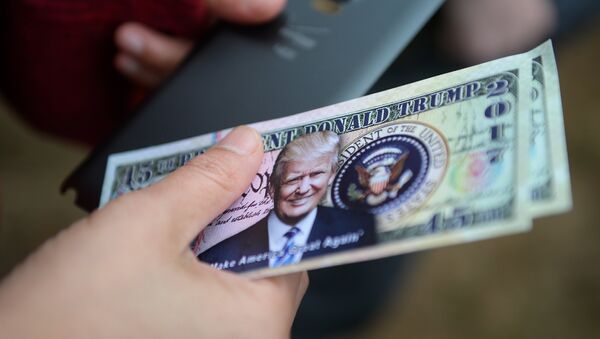India has been a beneficiary developing country under the Generalised System of Preferences programme also known as the GSP that allows specific products from 120 developing countries and territories to enter the United States duty-free. India has maintained high tariffs on US goods such as flowers, natural rubber, automobiles, motorcycles, alcoholic beverages, and textiles.
Sputnik has discussed this with Michael Every, head of financial markets research, Asia-Pacific, at Rabobank.
Sputnik: In your view, what impact can this statement from Trump have on US-India business relations?
Michael Every: It's a no-brainer that it's negative. First of all, you have to say that it hasn't actually happened yet; it's basically, a letter is going into effect in 60 days, this is going to happen. Presumably, you could see some mad scramble diplomatically to try and get the Americans to step back from that particular action, but that obviously would have to be on the Indian side. But nonetheless, yes, this is going to put a strain on the relations between the two. It's interesting because if you look at the last couple of years, India, Mr Modi [Prime Minister of India] has been trying to get closer and closer to Mr Trump; and has been kind of rebuffed on several occasions and this is the latest rebuffing on that particular path.
READ MORE: India Downplays Trump's Intent to Withdraw Trade Benefits
Sputnik: How is this going to impact India in terms of the economic element of it? I mean, there's going to be some kind of impact; what can you share with us?
Michael Every: It's relatively minor. I mean, India is over a trillion dollar economy, it's not small by any means. And we are talking about 5.7 billion, so, frankly, it's very small beer. But nonetheless, for those who are directly involved, it will hurt them. And, symbolically, it's not the kind of thing that you would expect if you were going to see closer relations between the US and India going forward. But you have to also consider, just perhaps, that this is a negotiating stance by the US — they see what's happened recently between India and Pakistan, they see that Pakistan is increasingly siding with China which, of course, the US is highly antagonistic towards in multiple dimensions; and India is going to need the support of the US. And the US has actually recently cleared the sale of much higher level defence technology to India than it's ever allowed in the past. So that pathway seems to be cleared. Possibly this all is just part and parcel of a broader kind of reshuffling of political and economic arrangements between the two. But it's a very aggressive game that Trump is playing, if that's so.
READ MORE: US Withdrawal of Turkey's Duty Free Status May Affect Its Businesses — Ankara
Sputnik: Some analysts have noted that such an approach by the US can lead to India reconsidering its stance on China's Belt and Road Initiative. What's your general opinion of the global geoeconomic situation in terms of this game he's playing? It's highly complex, isn't it?
Michael Every: Number one, there's not a chance of India going China's way on the Belt and Road. America can tweak India's nose over this absolutely, they won't like that. The chances of them drifting back towards China over a snub like this are a snowball's chance in hell. America doesn't have claims on Indian territory — China does; America doesn't arm Pakistan anymore — China does. We are talking about a scratch versus a stabbing in terms of how it sees the two relatively as a threat to it. And in terms of the overall geopolitical game, there is a great game being played; increasingly people are talking about it. But the trade war is just one facet of it. If you don't think of it in economic terms, if you think of it in geo-strategic terms, which as you just asked me to, you are saying a 20-trillion-dollar economy is having to pay $50 billion a year to confront its geo-strategic rival and teach it a lesson and try to put it back in its box. That's a very low price to pay, that's extremely cheap. So, the economists may mash their teeth and say "Goodness me, this is unaffordable". They obviously have never read any history or any politics or certainly any geopolitics because they don't understand what that means in the bigger picture.
READ MORE: De-dollarisation: India, Japan Activate $75 Billion Currency Swap Agreement
Sputnik: Just give is your final thoughts on this impact on the future relations between India and China. Just give us a sort of prognosis going forward for those two economic powers given the current situation.
Michael Every: There's not a chance of any rapprochement on the back of what's just happened. India doesn't trust China, China doesn't trust India. There's only room for one giant Asian power in Asia as far as both of them are concerned. India is currently extremely weak and China is extremely strong between the two, and India obviously wants to try and strengthen itself, and China doesn't want that to happen and would like India to be part of its Belt and Road and very much the junior partner. So, you're never going to square that circle.
The views and opinions expressed by the speaker do not necessarily reflect those of Sputnik.



